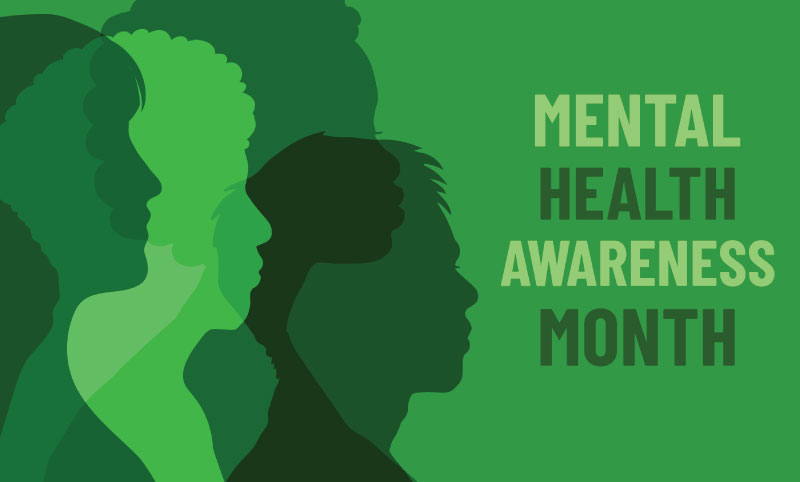
The past two years have been just plain exhausting, for everyone. At the top of the list is certainly COVID and the attendant health fears, but it’s been a veritable cavalcade of stress- and anxiety-inducing challenges ever since: lockdowns, shuttered businesses, virtual learning, supply chain delays, staff shortages, canceled flights, inflation at a 40-year high and war in Ukraine.

The mental toll is hard to measure, but it’s real, and recent data bears that out. The 2022 “Stress in America” survey by the American Psychological Association found that 87% are experiencing significant stress over the rising cost of essential goods like food, energy and shelter; that’s up from 59% in August 2021. More than 80% cite the Russian invasion of Ukraine as having a negative impact on their mental well-being. The same number feel anxiety about supply chain woes.
And now, millions of people are headed back to the communal office; that adds a whole new layer of stress and anxiety as employees adjust once again to a major shift in their work environment, two years after being sent home indefinitely.
For our neighbors to the north, the situation isn’t looking much better. A recent survey by social well-being platform LifeWorks found that Canadians’ psychological health is at its lowest since March 2020. And almost half of the people there are rethinking their career goals due to pandemic challenges and workplace stress.
Bottom line: It’s OK to admit it’s been a struggle. Recognizing and affirming emotions is the first step toward addressing mental wellness, which allows us to show up intentionally for ourselves and those around us, in the face of the myriad factors that are out of our control.
In this Q&A in recognition of Mental Health Month, we bring together three professionals to answer frequently asked questions: Dr. Natalie Chaykin, a licensed clinical psychologist at Mind Body Health, LLC; Martha Munroe, a mental wellness expert and coach with a master’s degree in Applied Positive Psychology and Coaching Psychology; and Elaine Sanders, a certified life coach, stress consultant and co-founder of The Stress Experts. They share their expert advice on continuing to contend with long-term mental challenges in the face of the year’s many trials.
Q: What stressors and symptoms have clients been bringing up in conversation?
ES: Many of mine report being bullied for their stances on different things. It could be strangers at the grocery store or on social media, or even family members. We’re suffering from polarization, and it’s being perpetuated online and by the media.
MM: Lack of control is a common theme. We had five-year or 10-year plans that aren’t there anymore. People have also lost businesses, and their relationships with loved ones have changed. There’s inflation, war, COVID, all while we’re trying to live our lives in an intentional way. So we’re languishing – we’re not all clinically depressed, but we’re not thriving. We’re struggling. We’re burnt out from trying to be optimistic, especially here in Canada. We’d have hope…and then there was another lockdown. It was an exhausting cycle of hope and disappointment. So our nervous systems are depleted.
NC: Clients are struggling with disordered eating and body image, even if they don’t meet clinical criteria for an eating disorder. They may be engaged in binge eating, restrictive eating, binge-restrict cycles, fad/yo-yo dieting, over-exercising (or lack of activity) and/or hyper-focus on body image and dissatisfaction. People are returning to work and social events and they’re not fitting into their clothes. We’re also struggling with dusting off social skills, like office small talk, establishing boundaries and adjusting to relationship changes.

“We’re languishing – we’re not all clinically depressed, but we’re not thriving. We’re struggling. We’re burnt out from trying to be optimistic.” Martha Munroe
Q: What’s the mindset that’s important to have in the midst of a plethora of stressors?
MM: The self-compassion piece is crucial. We have to acknowledge that it’s been hard. That’s part of the Great Resignation – we’re questioning everything. It’s been a collective existential crisis. We took control for granted – it’s hard to accept that we don’t have it. So we have to figure out a new way of showing up. We have to 1) validate the struggle; 2) treat ourselves with kindness; and 3) share with others. We’re embarrassed that we’re struggling. It’s not complaining; it’s admitting this is hard. Trust that others have the space to hold it – choose people who have the space for what you have to share.
NC: Flexibility should be the foundation to any mindset. Shift away from rigid, all-or-nothing thinking and instead focus on what makes sense in each moment and context. Give yourself permission to feel your emotions, rather than trying to avoid or fix which just, ironically, lengthens the process of emotional reactivity. Pay attention to the present moment without judgment or control and observe your feelings as they rise and fall, which will enhance your ability to manage your emotions and the inevitable stressors you face.
ES: Stress is unregulated negative reactions to our perceptions, so we need to think about self-reflection exercises. Meet your own needs so you can address your triggers, and look at your perceptions. Where do they come from? Where are they fed? Why do we believe certain things? If we heal ourselves, the world won’t trigger us as much.

“Stress is unregulated negative reactions to our perceptions, so we need to think about self-reflection exercises. Meet your own needs so you can address your triggers, and take a look at your perceptions. Where do they come from?” Elaine Sanders
Q: How do we talk to our kids about what’s going on and what they’re hearing?
ES: Kids look to a leader. They look at adults to figure out the appropriate emotional response. So when adults have taken the time to heal themselves, that bodes well for the kids.
MM: Model to kids what you’ve learned in the 30-year head start you have on them. Life isn’t always easy and we have to be open and vulnerable about that. We don’t have to say “Everything’s fine” when it’s not. Kids can pick up on emotions. They can tell when you’re having a hard time. So it’s a good opportunity to model being human. Even small kids understand what “having a hard day” is. Don’t put adult struggles on them, but just let them know how you’re feeling emotionally. It helps them with their emotional vocab and intelligence.
NC: It’s helpful to give kids a sense of security while also normalizing and validating emotions they’re feeling. Discuss the fact that there’s a lot of uncertainty in the world, and we don’t have much control and there’s not always a solution, which isn’t our fault. But we can work on coping with that discomfort. Show them that emotions are safe; name what you’re feeling and show them how you cope with it. For example, “Mommy feels lonely sometimes too, and that can feel sad. So that’s when she reaches out to an old friend to chat.”
Q: What day-to-day habits can we foster (and perhaps change to our routines) to lessen stress?
ES: We do have control over our stress. Look at what’s being consumed. A makes me feel C but we forget about B: our beliefs, perceptions and worldview. A doesn’t do anything to us. A doesn’t produce C without B. So we need to address perceptions, which leads to more sustainable calm, emotional regulation and lower stress.
MM: We have to acknowledge we’re struggling. Otherwise we retreat, become more alienated and then we’re fake happy and making it worse because we’re gaslighting ourselves. Maybe in a meeting, you say, “Hey I’m feeling a little down today, so I’ll try my best not to let that impact the meeting but I just wanted to let you know.” That’s a permission slip for others to be vulnerable too.
NC: Regulating our nervous system is crucial during times of stress. It’s more than just relaxation – it’s a skill to practice in order to rewire our neural pathways and behavior patterns. Practice diaphragmatic breathing for about five minutes a day, especially before bed as it reinforces deeper sleep. At the top of each hour during the day, do a quick body scan (mentally scan your muscle groups from head to toe and release any tension). Mindfulness is hard work and doesn’t come naturally, so be patient with yourself. Try a mindfulness app or start with short meditations on YouTube.

“Regulating our nervous system is crucial during times of stress. It’s more than just relaxation – it’s a skill to practice in order to rewire our neural pathways and behavior patterns.” Natalie Chaykin
Q: When is it time to ask for professional help?
NC: It doesn’t always require an aha moment or hitting rock bottom. You may notice a change in your typical behaviors and routines, like more or less sleep, lower or higher appetite, isolating from loved ones or activities, procrastinating, or hyper-focus on work. Reach out if your mood or thoughts are impacting daily functioning, like negative or anxious thoughts, irritability, tearfulness or numbness/lack of emotion. But therapy can also help you enhance your life. Many people seek out therapy because they simply feel stuck and don’t know what to do about that.
Remember, don’t be afraid to reach out if you or someone you know needs help. Learning all you can about mental health is an important first step. Contact your health insurance, primary care doctor or state/county mental health authority for more resources. You can also call the National Alliance on Mental Illness Helpline at (800) 950-NAMI, or in a crisis, text “NAMI” to 741741. If you or someone you know needs help now, immediately call the National Suicide Prevention Lifeline at (800) 273-8255 or call 911. For more resources on mental health, visit nami.org.
ASI’s Employee Assistance Program through Magellan is available 24/7 and offers digital emotional wellness programs, counseling and other life enrichment services that are free of charge and kept completely confidential. In addition, ASI offers Teladoc and webinars on various mental health topics and grief counselling, for employees. For more information, contact the HR department at ASI. (*Note: These services are only available to ASI employees.).